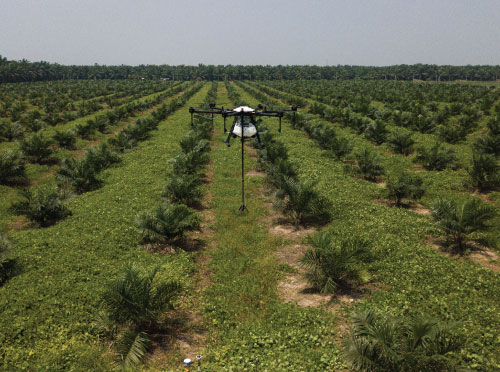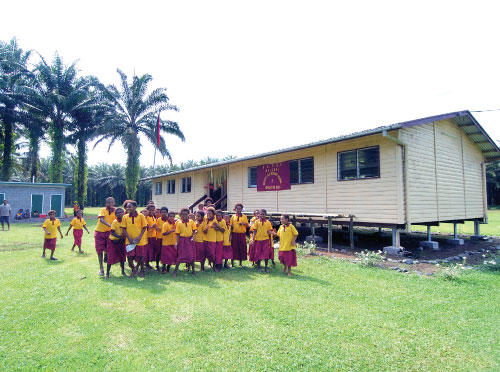[GRI 2-23, 2-24]
OVERVIEW
Sime Darby Plantation (SDP) must assume a leadership role in ensuring palm oil production meets demand
Given our size and reach, Sime Darby Plantation Berhad (SDP) must assume a leadership role in ensuring palm oil production meets demand but with minimal negative impact on the environment and the millions of people affected by the industry. SDP has operations across the entire palm oil value chain and is, therefore, in a strategic position to work with the industry to make it free of deforestation and exploitation. Ensuring our products are 100% certified sustainable is the first step. However, we must continue to raise the bar for ourselves, our customers, our suppliers, and all actors within the palm oil sector.
Updating SDP’s guiding policies
Our No Deforestation, No Peat and No Exploitation (NDPE) commitments are formalised in dedicated charters and guidelines Our Responsible Agriculture Charter (RAC) and Human Rights Charter (HRC) formed the backbone of our sustainability measures.
The RAC was launched in 2016 and outlines our environmental commitments, which were in line with the industry at the time.
The HRC was published in 2017 and is our guiding document on social-related commitments in line with fundamental human rights guidance, such as the Universal Declaration for Human Rights and the United Nations Guiding Principles (UNGP) on Business and Human Rights. RAC and HRC commitments apply to both our internal operations and external stakeholders, including third-party suppliers, business partners, and vendors, who are subject to a dedicated set of Responsible Sourcing Guidelines. We have also implemented a dedicated policy on halting deforestation within the supply chain called Working with Suppliers to Draw the Line on Deforestation.
In 2020, we revised the RAC and HRC to reflect our strengthened NDPE commitments. We have since ensured our sustainability measures are updated regularly to align with our latest requirements for effective implementation of these Charters throughout the Group. All Charter commitments are communicated to internal and external stakeholders through relevant platforms and documents. These engagement sessions include, but are not limited to, email communications to key stakeholders (employees, key customers, investors and shareholders), direct one-to-one engagement sessions with stakeholders, speaking engagements in public forums, and updates on websites and social media platforms. The Charters are reviewed every three years.
Overview of 2020 revisions to RAC and HRC:

Closer alignment with the 2018 RSPO principles and criteria (P&C), The accountability framework initiative, and UNGP on business and human rights

Stronger commitments on conservation area assessments, addressing climate change impacts, minimising pesticide use and upholding no deforestation commitments within our supply chain

Stronger commitments to community engagement, labour and children’s rights; new commitment to protecting human rights defenders


